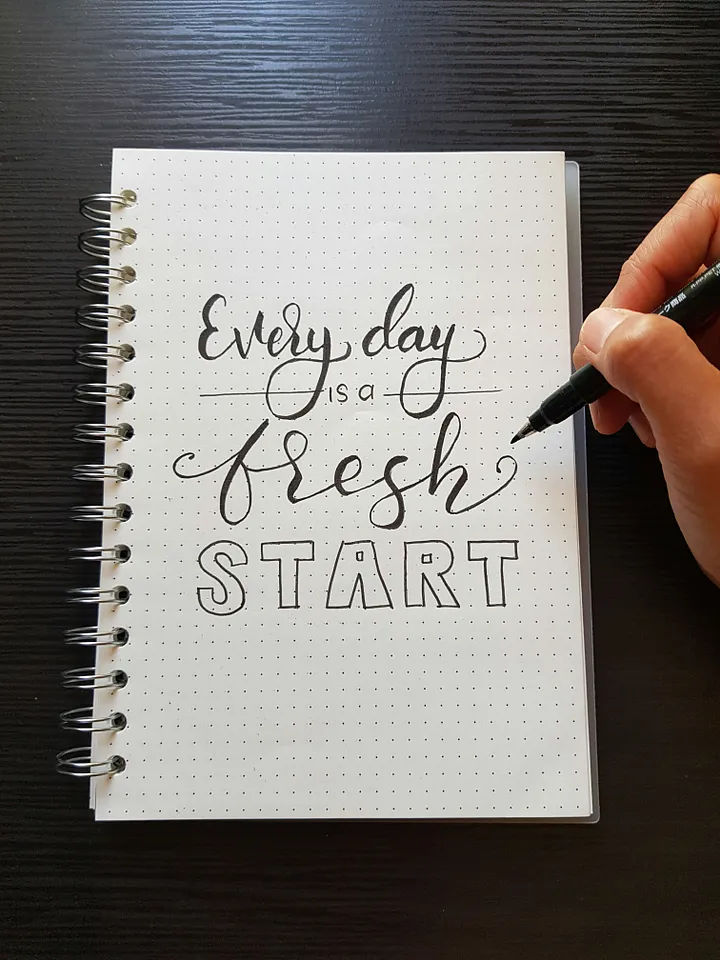Automation: A Life on Repeat
The Cycle of Automation
The typical day for many of us involves waking up, commuting to work, spending the day performing tasks that may or may not align with personal passions, returning home, and then preparing for the next cycle. This routine is not merely a consequence of economic necessity but a reflection of deeper societal structures that prioritize productivity over well-being. As I explore in my book Decrypting Globalization, the global economic system exerts immense pressure on individuals to conform to these cycles, perpetuating a sense of inevitability and entrapment.
The advent of digital technologies has further entrenched this pattern. Our phones wake us with alarms, schedule our meetings, remind us of deadlines, and even track our sleep patterns. While these tools offer efficiency, they also contribute to a life that feels increasingly mechanized. The constant connectivity blurs the boundaries between work and personal life, making it difficult to find respite from the demands of the day.
Moreover, the rise of remote work, initially hailed as a means to provide greater work-life balance, has paradoxically led to longer work hours and increased stress. The home, once a sanctuary from professional demands, has become an extension of the office, erasing the physical and mental separation between labor and leisure. This phenomenon has exacerbated the sense of living life on repeat, with no clear demarcation between personal time and work obligations.
The Philosophy of Automata
To understand the implications of this automation, we must look inwards into the essence of our human existence and agency. In Probing Freewill, I examine the tension between autonomy and determinism. The automation of our daily lives can be seen as a form of determinism, where external systems dictate our actions and choices, taking away our freedom of choice. This raises the question: are we truly the authors of our own lives, or are we merely following a script written by societal expectations and technological imperatives?
Existentialist philosophers like Jean-Paul Sartre argue that despite the constraints imposed by society, individuals possess the freedom to define their own essence through actions and choices. However, the relentless cycle of wake, work, and sleep can stifle this freedom, leaving little room for self-discovery and authentic living. The challenge, then, is to reclaim our agency in a world that increasingly demands conformity.
This existential dilemma is not new. Throughout history, philosophers have grappled with the tension between individual freedom and societal constraints. From the Stoics’ emphasis on inner tranquility amidst external chaos to Nietzsche’s call for the creation of personal values in a godless world, the quest for autonomy has been a central theme in philosophical thought. In our modern world, this quest takes on new urgency as technological and economic forces shape our daily lives in unprecedented ways.
The Role of Capitalism
In Power & Ethics, I discuss how economic structures influence moral and political behavior. Capitalism, with its emphasis on efficiency and profit, has played a significant role in shaping the repetitive nature of our lives. The drive for economic growth necessitates a workforce that is consistently productive, leading to the standardization of work hours and routines. This system not only impacts our daily lives but also shapes our values and aspirations.
Capitalism’s influence extends beyond the workplace. Consumer culture, driven by the need to sustain economic growth, encourages us to seek fulfillment through material possessions and experiences. This creates a cycle of desire and consumption that mirrors the repetitive nature of work. We are conditioned to believe that happiness lies in the next purchase or the next promotion, perpetuating a sense of never-ending pursuit.
This phenomenon of “destination addiction” which I previously discussed in my writings, traps individuals in a perpetual state of dissatisfaction. We are constantly striving for the next milestone; be it a higher salary, a bigger house, or a more prestigious job title, believing that it will bring us the contentment we seek. However, once achieved, these milestones often prove fleeting in their ability to provide lasting happiness, leading us to chase the next goal in an endless cycle.

The Impact on Mental and Physical Health
The automation of our lives and the relentless pursuit of productivity have significant implications for our mental and physical health. The chronic stress associated with constant connectivity and demanding work schedules can lead to burnout, anxiety, and depression. The WHO has recognized burnout as an occupational phenomenon, highlighting the widespread impact of work-related stress on global health.
Physically, the sedentary nature of many modern jobs contributes to a host of health issues, including obesity, cardiovascular disease, and musculoskeletal disorders. The lack of physical activity, coupled with poor work-life balance, exacerbates these health risks, creating a vicious cycle where poor health further diminishes quality of life.
Moreover, the social isolation that often accompanies our automated routines has detrimental effects on mental well-being. As we become more absorbed in our devices and work demands, meaningful human connections suffer. This isolation leads to feelings of loneliness and alienation, further compounding the mental health challenges posed by modern life.
Breaking the Cycle
Breaking free from the automated cycle of life requires a conscious effort to re-evaluate our priorities and redefine what it means to live meaningfully. This begins with mindfulness; an intentional focus on the present moment that allows us to appreciate the nuances of our daily experiences. By cultivating mindfulness, we can disrupt the autopilot mode that often governs our actions and decisions.
Practicing mindfulness involves more than just meditation; it encompasses a holistic approach to living with intention and awareness. This can include mindful eating, where we savor each bite and recognize the nourishment it provides, or mindful walking, where we appreciate the sensations of movement and the beauty of our surroundings. By integrating mindfulness into various aspects of our lives, we can cultivate a deeper sense of presence and engagement.
Moreover, finding meaning in our work is crucial. Aligning our professional lives with our personal values and passions can transform work from a mere obligation into a source of fulfillment. This may involve seeking out careers that resonate with our interests, advocating for more humane work policies, or even pursuing entrepreneurial ventures that reflect our ideals.
This alignment requires a critical examination of our current work situations and the courage to make changes that better reflect our values. For some, this might mean transitioning to a different industry or role, while for others, it could involve advocating for change within their existing organizations. By taking proactive steps to align our work with our values, we can reclaim a sense of purpose and satisfaction in our professional lives.
Community and connection also play a vital role in breaking the cycle. Building relationships based on mutual support and shared values can provide a sense of belonging and purpose that transcends the monotony of daily routines. Engaging in communal activities, volunteering, and participating in social movements can foster a deeper connection to the world around us.
In addition to traditional community involvement, the digital age offers new opportunities for connection. Online communities, social media groups, and virtual events can help bridge the gap created by physical distance, enabling us to connect with like-minded individuals and build supportive networks. By leveraging these digital tools mindfully, we can enhance our sense of community and belonging.

The Ethical Dimension
Ethical considerations are central to navigating the automated cycles of life. As I explore in Power & Ethics, our actions and decisions should be guided by principles that promote the well-being of individuals and communities. This involves questioning the ethical implications of our work, consumption habits, and use of technology.
For instance, the rise of the gig economy and precarious employment conditions highlights the need for ethical labor practices that respect the dignity and rights of workers. The gig economy, characterized by short-term contracts and freelance work, often lacks the stability and benefits associated with traditional employment. This can lead to economic insecurity and exploitation, necessitating a reevaluation of labor practices to ensure fair treatment and adequate protection for all workers.
Similarly, the environmental impact of our consumption patterns calls for a commitment to sustainability and responsible stewardship of natural resources. The production and disposal of consumer goods contribute to pollution, habitat destruction, and climate change. Adopting sustainable consumption habits, such as reducing waste, supporting eco-friendly products, and embracing minimalism, can mitigate these impacts and promote a healthier planet.
Furthermore, the ethical use of technology is paramount in an age where digital tools pervade every aspect of our lives. This includes ensuring data privacy, preventing digital addiction, and addressing the ethical dilemmas posed by emerging technologies like artificial intelligence. By approaching technology with a critical and ethical mindset, we can harness its benefits while minimizing its potential harms.
A Vision for the Future
Imagining a future beyond the automated cycles of wake, work, and sleep involves rethinking the structures and systems that shape our lives. This vision includes:
I. Flexible Work Arrangements: Advocating for policies that allow for greater flexibility in work schedules can help individuals balance professional and personal commitments. This includes options for remote work, reduced hours, and job-sharing arrangements.
Flexible work arrangements can lead to increased job satisfaction, improved mental health, and greater productivity. By giving employees the autonomy to manage their work schedules, organizations can foster a more motivated and engaged workforce. Additionally, flexible arrangements can support a better work-life balance, allowing individuals to prioritize family, hobbies, and self-care.
II. Universal Basic Income: Implementing a universal basic income can provide financial security and reduce the economic pressures that drive the repetitive work cycle. This can empower individuals to pursue meaningful activities without the constant worry of economic survival.
A universal basic income can alleviate poverty, reduce inequality, and provide a safety net for those facing economic uncertainty. By ensuring a basic level of financial security, individuals can explore creative and entrepreneurial pursuits, invest in education, and contribute to their ommunities in ways that align with their values and passions. This financial stability can also lead to greater overall well-being, as individuals are freed from the relentless pressure to work solely for survival.
III. Lifelong Learning: Promoting a culture of lifelong learning encourages individuals to continually develop their skills and interests. This can lead to greater job satisfaction and the ability to adapt to changing economic landscapes.
Lifelong learning can be facilitated through accessible educational programs, online courses, and community workshops. Encouraging a growth mindset, where individuals see learning as a continuous process rather than a finite goal, can foster resilience and adaptability. This approach not only enhances personal fulfillment but also contributes to a more innovative and dynamic workforce.
IV. Community Building: Strengthening social bonds through community initiatives and cooperative models can create support networks that enhance well-being and resilience. This includes fostering local economies and promoting social enterprises that prioritize people over profits.
Community building can involve creating spaces for social interaction, supporting local businesses, and encouraging collaborative projects that address communal needs. By prioritizing social connections and mutual support, communities can become more resilient in the face of economic and social challenges. This collective approach can also foster a sense of belonging and shared purpose, counteracting the isolation often experienced in modern society.
V. Mindful Technology Use: Encouraging mindful and intentional use of technology can help individuals regain control over their time and attention. This involves setting boundaries for digital consumption and prioritizing activities that promote mental and emotional well-being.
Mindful technology use includes practices such as digital detoxes, setting specific times for checking emails and social media, and using technology to enhance rather than detract from personal relationships. By being intentional about how we engage with digital tools, we can reduce the negative impacts of technology on our mental health and reclaim our time for more meaningful activities.
The Role of Government and Policy
Achieving these visions requires proactive involvement from governments and policymakers. Legislative measures can play a crucial role in creating the conditions for a more balanced and fulfilling life. This includes labor laws that protect workers’ rights, social policies that support family life, and environmental regulations that promote sustainability.
Governments can also invest in public infrastructure that enhances quality of life, such as parks, community centers, and public transportation. These investments can facilitate social interactions, physical activity, and access to cultural and recreational activities, all of which contribute to well-being.
Furthermore, policies that support mental health, such as funding for counseling services and mental health education, can help individuals manage the stresses of modern life. By prioritizing mental health at a policy level, societies can create a supportive environment that enables individuals to thrive.

The Importance of Personal Agency
While systemic changes are essential, individual actions play the central role in breaking the cycle of automation. Personal agency involves taking responsibility for our own well-being and making conscious choices that align with our values and aspirations.
This can start with small, intentional changes in daily routines. For instance, setting aside time for hobbies, exercise, and relaxation can provide a break from the monotony of work. Practicing gratitude and focusing on positive aspects of life can also enhance mental well-being and shift our perspective towards appreciation rather than constant striving.
Moreover, cultivating self-awareness through practices like journaling or meditation can help individuals identify their true desires and motivations. This self-knowledge can inform decisions about career paths, relationships, and personal goals, leading to a more authentic and fulfilling life.
The Intersection of Philosophy and Daily Life
The philosophical insights discussed in my works, such as the tension between destiny and freedom of choice in Probing Freewill and the ethical considerations in Power & Ethics, provide a framework for understanding and addressing the challenges of automated living. By engaging with these philosophical concepts, individuals can develop a deeper awareness of the forces shaping their lives and find ways to navigate them with intention and integrity.
For example, the existentialist emphasis on creating personal meaning can inspire individuals to seek fulfillment in everyday actions, rather than waiting for external validation or achievements. The Stoic practice of focusing on what is within our control can help manage stress and cultivate resilience in the face of external pressures.
Similarly, ethical reflections on consumption and labor practices can guide choices that align with broader values of sustainability and social justice. By integrating these philosophical principles into daily life, individuals can live more consciously and contribute to a more equitable and compassionate world.
Another Day, Another Opportunity
The automation of our lives into repetitive cycles of wake, work, and sleep poses significant challenges to our sense of autonomy and fulfillment. By engaging in philosophical reflection, advocating for ethical practices, and reimagining societal structures, we can begin to break free from these cycles and create a life that is rich in meaning and purpose.
In doing so, we honor our capacity for self-determination and creativity, forging a path that transcends the confines of automation and embraces the full spectrum of human potential. In our daily lives, let us constantly remember that true fulfillment lies not in the endless pursuit of productivity, but in the conscious and intentional embrace of each moment, each choice, and each connection.
The quest to break free from the cycle of automation is a deeply personal and collective endeavor. It requires a willingness to challenge existing norms, advocate for systemic change, and cultivate personal practices that foster well-being and authenticity. This will enable us to reclaim our lives from the grip of automation and rediscover the joy and meaning that comes from living intentionally and with purpose.
In the words of Søren Kierkegaard,
“Life can only be understood backwards; but it must be lived forwards.”
As we reflect on our automated routines and seek to understand the forces that shape them, we must also look forward with hope and determination, creating a future where our lives are not merely a series of repetitive cycles, but a web of meaningful experiences and deep connections.

